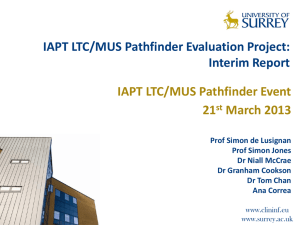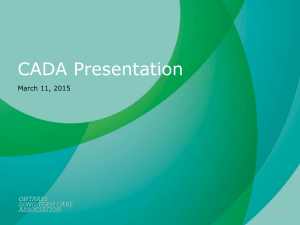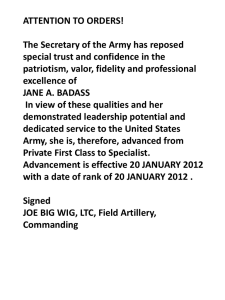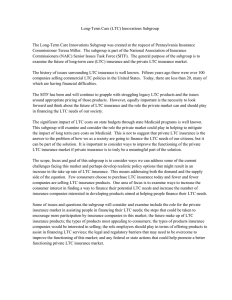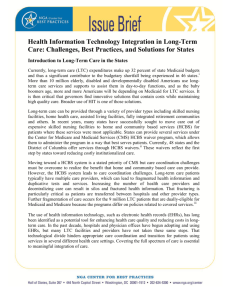Camden and Islington Report Oct 2012
advertisement
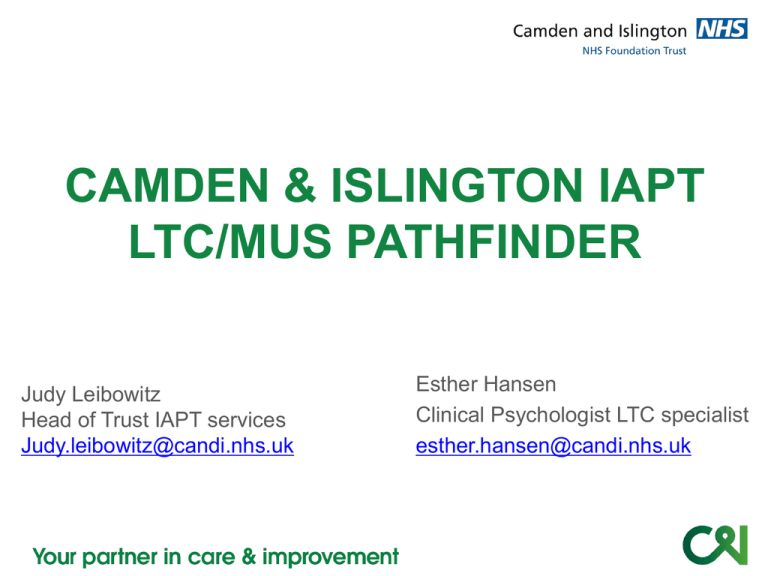
CAMDEN & ISLINGTON IAPT LTC/MUS PATHFINDER Judy Leibowitz Head of Trust IAPT services Judy.leibowitz@candi.nhs.uk Esther Hansen Clinical Psychologist LTC specialist esther.hansen@candi.nhs.uk Camden and Islington Pathfinder- key elements • • • • Increase skills of IAPT workforce Care pathways development Dedicated clinical sessions in LTC settings Pilot projects with identified GP practices IAPT LTC/MUS OUTCOMES referral pathways primary care – leaflets and letters links with community health teams sessions in self-management groups o referral no o MDT skills Access o o o o Moving into treatment o o o o amend assessment process (psychological) service mapping identified contacts for consultation staff competencies to sell psychological interventions o joint working with primary care teams o increased up-take o short wait o knowledge of services o range of worksheets o LI interventions – eg self-help booklet/ carer package o guides for staff o develop staff competencies o collaborative care – pilot practices o LTC/MUS outcome measures o staff competencies Recovery ACCESS o referral pathways o ▪ screening questions ▪ training/coaching of MDT staff ▪ devising scripts ▪ responding to common barriers to access o primary care - leaflets and letters ▪ leaflet about service ▪ invitation for ‘psychological wellbeing review’ o links with community health teams ▪ based in integrated care service (Camden) ▪ close links with team leaders ▪ IAPT consulting MDT members osessions in self-management groups ▪ heart failure, COPD, Desmond & Daphne outcomes o quarterly increase in referral numbers o materials available (leaflets, scripts) o survey of MDT staff o staff consulting MDT members regarding LTC o LI staff running psychoeducation sessions TREATMENT UP-TAKE o amend assessment process ▪ asking about LTC ▪ asking questions that help decision making re treatment or referral o mapping services ▪ clarification of referral criteria ▪ when should people be referred on o o identified specialists in the service • available for consultation o staff competencies to sell psychological interventions ▪ training/coaching LI workers on engagement ▪ worksheets that can be used in assessment o Joint work with primary care teams • when to raise psychological factors • collaborative care approach (eg cardiac risk study) outcomes o quarterly increase in numbers taken into treatment o shorter time for decision to treat o increased knowledge of services o competence and confidence in staff RECOVERY o worksheets to support interventions for ocommon symptoms or difficulties in LTC/MUS (e.g. pacing, relaxation, managing health worries etc.) o guided self-help booklet “Reclaiming your life from illness, disability, pain or fatigue” and carer intervention o practitioner guides for LI workers for different treatment packages that include scripts and problem-solving tips o develop staff competencies training and skills workshops ▪ consultation and supervision groups o collaborative care Pilot practices – MUS – cardiac risk study outcomes o sessional and treatment measures o materials available (worksheets, scripts) o survey of staff Challenges and Learning points so far • Context – funding delay, organisational & staff changes • Support from commissioning (CCG) – fits with priorities – additional funding from Camden • Importance of language in engagement – involve service users • LI interventions fit well with self management approach for LTCs • LTC pathways complex – specialist knowledge and links very helpful • Culture change takes time – staff and referrers
